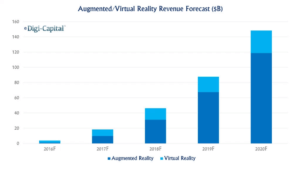Why Virtual Reality will fail, maybe?
The past has a lot to teach us about failures in virtual reality, did we listen this time?
The past half-century is littered with the graves of failed VR ventures, a lot earlier if you include stereoscopes. From giant human hamster balls to omnidirectional treadmills to super gloves to nauseating laggy headsets and everything in between, if you can think it, it’s likely someone’s tried it. Fingers have been pointed wildly, most at hardware incapable of delivering on promises, some at overhype, others at underhype, lack of content, poor marketing strategies, and badly thought out early adoption campaigns. But no matter where the blame for failure lies, the bottom line is this, virtual reality is nothing new. And it has a terrible batting average.
But that of course begs the question: Were all of these early precursors seminal vision pieces? Or simply examples of an alluring yet unrealistic technology
Browsing the headlines will have you hard pressed to find much by the way of negative news concerning VR. All breathtaking new technology, record startup funding, and constantly doubling 5-year earning predictions. But amidst the fervor there are dissenting voices, and it’s important that we listen to them. There are significant hurdles standing between VR and mainstream adoption of the technology, and they are ones VR has tripped over in the past.
The bets made by today’s tech giants on behalf of VR do bode well, names like Google, Facebook, Amazon, Sony, and Microsoft all funneling billions into development. And the influx of investor cash has spurred a Cambrian explosion of apps and accessories for VR platforms. While currently incubated by devoted gamers and tech enthusiasts, VR will need to gain mainstream traction to be viable. While this is a viewpoint shared almost universally in the industry, no one is really sure what that app that will open the consumer base will be.
VR platforms like Oculus are currently operating at a loss, similar game-changing platform launches like the xbox took years to become profitable, and it’s likely that it will be the same story VR. Should VR ever reach mainstream profitability. There are a few specific roadblocks that have stood between VR and success in the past. Let’s discuss them.
content volume + (quality/hype) > Price
Content Volume: It’s been shown before, a lack of games at release can kill a console before it has a chance to get started. This really becomes a problem when the platform isn’t made accessible to developers and the company does little in the way of incentivising content creation.
The good news for this generation of VR is that there are actually quite a few titles out in advance of the release of the platforms. Due in large part to oculus’ foresight to work closely and readily with developers well in advance of the release. There are over 70 titles available for the oculus rift, bearing in mind that the PS4 launched with only 24 games this doesn’t sound so bad.
Now it is worth mentioning that most of these games are not very deep, as most developers are just now starting to work with the technology. There are more in depth titles in the pipeline but these initial games will have to tide people over until they arrive. If people lose interest before they arrive and get bored with the technology it could become a difficult bridge to cross for investors.
Quality Over Hype: Overhype is a notorious killer of new and exciting technologies. Look at the 90s video game Duke Nukem for example. The first game was so revolutionary and exciting that they got drowned in money in support (sound familiar yet?) to make a sequel. The pressure from the expectations combined with the huge funding turned it into a 20 year project that resulted in a lackluster game that was already behind the times when it came out.
VR is amazing, but if you read all the articles that are coming out people are expecting it to turn water into wine. While it is groundbreaking and inspiring tech, if it can’t meet expectations it could fall flat out of the gates.
PRICE: Price will end up as the make or break factor for this technology. Right now cardboard and Gear are anywhere from free reasonably affordable. But these are not the full experience by any means. Full kits are selling for much much more. The rift and vive sell for 600 and 700 respectively, but both need computing power that you’re not going to find for less than 1,000$. The technology is worth what it costs, the tech to drive what people have envisioned VR as exists, but it’s not accessible to most people yet.
Dedicated gamers and tech enthusiasts are more likely to already have computers capable of running the software. But for the average person it’s not feasible to spend over 1,000 on a computer just to run the oculus. These early investing companies are knowingly taking losses up front with the hope that their tech will become the industry standard when (or if) the prices drop enough for average people to able to afford it.
The largest tech companies in the world are all throwing mountains of money at different angles of this tech. Augmented reality from microsoft, full immersive virtual reality from facebook, and the mysterious mixed-reality from Google’s Magic Leap venture. Not to mention the projects by HTC, Samsung, and Amazon among others.
The influx of funding has seeped out into peripheral startups building content and accesories. If you talk to someone in industry they’ll tell you that it’s not going to be gaming that brings this to the masses. It will be one of these small and numerous companies that makes the killer app that bridges the gas. As Wired’s Ariel Zambelich put it, “Finding the thing that will make people strap a box to their face.”
There are also people of the opinion that the ‘killer app’ of virtual reality is that it works. That we’ve crossed a line in the sand. But at what point does that turn into profit, and is it soon enough? The being said, virtual reality is likely the inevitable future of computing. Right now we are just scratching the surface. Over the next 5 years if the quality of VR experiences and quantity programs can beat the hype and price this could be the first successful generation. If not, this might be yet another failed venture.
People have been chasing VR for quite some time, could they have finally gotten it right?
About Jonathan Callahan

Like What You Are Reading? Subscribe To Read More
Join our mailing list to receive the latest news and updates from our team.






























